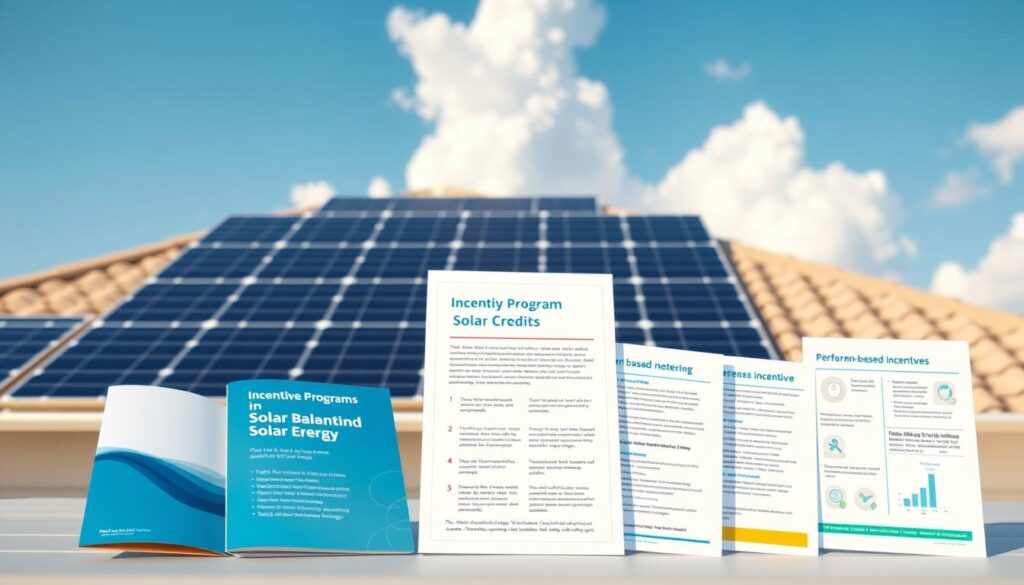Florida’s booming solar energy industry, fueled by its abundant sunshine, has seen rapid growth in solar panel installations. However, this expansion has also led to legal challenges. Recent lawsuits, such as those against Generac Power Systems, Better Earth, Inc., Lumio HX, and Vision Solar, LLC, highlight issues like defective components, delayed installations, and noncompliance with regulations. Homeowners and businesses facing financial harm from deceptive contracts or faulty systems need solar panel lawyers florida to protect their rights.
With rising disputes over contracts, permits, and code violations, solar power legal services are critical. Lawsuits in 2022 and 2023 revealed widespread issues, including companies failing to meet deadlines or local standards. Homeowners in Orlando and beyond have faced unexpected costs due to hidden fees and unfulfilled promises. Legal experts like Gunster and Jimerson Birr offer specialized guidance, backed by decades of industry experience and recognition for their expertise.
Key Takeaways
- Florida’s solar industry growth has increased legal disputes over contracts and compliance.
- Recent class-action lawsuits against major companies underscore the need for professional legal advice.
- Solar panel lawyers florida can help recover losses from deceptive sales or defective installations.
- Gunster and Jimerson Birr provide specialized services for regulatory compliance and litigation.
- Choosing the right legal team ensures protection against financial and contractual risks in solar projects.
Understanding Solar Panel Laws in Florida
Florida’s solar energy landscape is shaped by laws that balance innovation and regulation. Florida solar panel laws ensure residents and businesses can harness renewable energy while complying with state policies. Navigating these rules often requires guidance from environmental law attorneys who specialize in solar energy compliance.
Overview of Solar Energy Regulations
Key rules include prohibitions against HOAs banning solar systems and tax exemptions. Solar installations avoid sales and property taxes, lowering costs. Florida law also mandates HOAs allow rooftop panels unless they harm efficiency. Here’s what matters most:
- HOAs can’t block solar panels based on appearance alone
- Solar systems qualify for federal tax credits up to 26% in 2020
- Net metering credits vary by utility—some like JEA restrict new enrollments
- Contractors must disclose lien laws in writing
Key Legislation Impacting Solar Installations
Recent changes like Amendment 1’s 2016 defeat spurred market growth. Below are pivotal laws and their effects:
| Law | Description | Impact |
|---|---|---|
| Florida Solar Rights Act | Bans HOAs from blocking functional solar systems | Protects homeowners’ access to renewable energy |
| Federal ITC | 30% tax credit reduced to 26% in 2020 | Incentivizes timely solar investments before credits expire |
| Net Metering Laws | Require utilities to credit excess energy | Varies by provider—JEA restrictions highlight regional differences |
Complexities like lien timelines (90-day filing windows) and federal credit deadlines make legal guidance essential. Environmental law attorneys clarify how laws like Section 163.04 protect consumers and enforce HOA compliance. Stay informed to avoid costly mistakes!
Reasons to Consult Solar Panel Lawyers
Installing solar panels involves more than just choosing the right equipment. Solar panel legal advice from Florida specialists ensures every step stays legally sound. These experts handle everything from permits to contracts, shielding you from hidden pitfalls.

Legal Expertise in Solar Agreements
Solar panel lawyers florida specialize in reviewing contracts to spot risks. They check warranties, installation terms, and payment plans. For example, one firm reviewed a 17-MW solar farm contract in Latin America, ensuring terms protected the client’s rights. These attorneys also negotiate better terms, like extended warranties or financing options.
Navigating Utility Regulations
Utility companies have strict rules about grid connections and net metering. Lawyers help decode agreements with providers like the Florida Public Service Commission. They ensure you’re fairly compensated for excess energy and avoid penalties for noncompliance. Recent projects include advising on a 200-MW Texas solar project’s interconnection terms.
Ensuring Compliance with Local Laws
- Zoning laws vary by county—attorneys secure permits from agencies like the Florida Department of Environmental Protection.
- They handle variances for projects conflicting with building codes, such as rooftop installations in Miami-Dade.
- Homeowner associations often block solar installations; lawyers negotiate exceptions to protect your investment.
A firm recently resolved a dispute in Orlando, where a homeowner’s panels were blocked by local rules. Legal action secured approval, saving $15,000 in redesign costs.
Common Legal Issues in Solar Energy
Investing in solar energy often uncovers hidden legal challenges. From misaligned contracts to property disputes, these issues can derail even the best-laid plans. A solar energy law firm can help Floridians avoid pitfalls and enforce their rights.
“Consumers deserve clear terms and honest service when adopting solar technology.”
Contract Disputes with Installers
Recent cases highlight risks like delayed installations and misleading claims. The Florida Attorney General has taken action against companies like Setup My Solar and MC Solar for alleged fraud, including inflated savings projections and subpar equipment. Over 200 consumers faced project cancellations or incomplete systems, prompting class-action lawsuits. A green energy lawyers team can review contracts for hidden fees or termination clauses before signing.
Property Rights and Solar Access
Shading from neighboring properties or unclear easements can block sunlight access. Florida law protects homeowners’ right to install solar systems, but disputes over tree trimming or rooftop access require legal guidance. A solar energy law firm clarifies property boundaries and state solar rights statutes.
Homeowner Association Regulations
HOAs may impose restrictions on solar panel placement or aesthetics. Florida’s 2019 Solar Rights Act limits HOA interference, but conflicts arise over roof colors or equipment placement. A green energy lawyers specialist can challenge unreasonable covenants and ensure compliance with state protections.
In 2023, the Florida Attorney General’s office filed cases against three solar firms for deceptive practices, recovering over $2.1M in consumer refunds. Proactive legal advice helps avoid these traps.
How to Choose the Right Solar Panel Lawyer
Selecting the right solar panel lawyers florida requires careful evaluation. Look for attorneys specializing in renewable energy law, not general practitioners. Renewable energy attorneys with experience in large-scale projects, like those handling over 200 MW of solar capacity or utility-scale installations, bring critical expertise. These professionals understand Florida’s unique regulations, from net metering to zoning laws.

Credentials and Experience
- Verify attorneys with experience in high-stakes cases, such as the 2022 Generac lawsuit or 2023 Better Earth disputes.
- Choose lawyers who’ve handled projects like the 50 MW Navajo solar initiative or landfill-based installations.
- Check if they’ve navigated regulatory hurdles, like interconnection agreements with utilities or environmental compliance for brownfield sites.
Client Reviews and Testimonials
“Our team secured compensation for clients affected by underperforming solar systems, avoiding costly long-term fees.”
Review outcomes from cases involving unfulfilled contracts or deceptive sales. Look for attorneys who’ve resolved disputes over incomplete installations or improper permits, as seen in Vision Solar’s 2023 case. Ask candidates about their track record in class-action lawsuits and settlements.
Seek transparency on fees—avoid lawyers who charge hourly rates for straightforward permit applications. Opt for those offering flat fees for project-specific tasks. Prioritize firms like the first U.S. green bank’s legal team, which combines financial and regulatory expertise.
The Benefits of Going Solar in Florida
Florida’s sunny climate makes solar energy a smart investment. Switching to solar panels can cut costs, boost home value, and reduce environmental harm. A sustainability law firm ensures you take full advantage of financial and ecological gains.
Cost Savings and Incentives
Financial rewards start with federal and state programs. Solar power legal services simplify accessing these resources:
| Benefit | Details |
|---|---|
| Federal Tax Credit | 26% of system cost for 2023 installations |
| Net Metering | Credits of $0.10–$0.12/kWh for excess energy |
| Payback Period | 5–7 years for most residential systems |
A sustainability law firm helps homeowners qualify for rebates programs and tax deductions. Over 20 years, savings can top $30,000 while protecting against rising utility rates.
Environmental Impact and Sustainability
Florida leads the nation with 6,800 MW of solar capacity. Solar power legal services ensure projects align with environmental laws, aiding the state’s goal of 10% solar energy by 2030.
| Metric | 2023 Data |
|---|---|
| Solar Jobs | 20,000+ Floridians employed in solar |
| Carbon Reduction | Annual CO2 cuts equal to removing 1 million cars from roads |
| Economic Impact | $2.5 billion projected economic boost by 2030 |
Solar power legal services also support compliance with renewable energy standards. With 3% of Florida’s energy now solar, legal guidance ensures projects meet state sustainability targets.
Key Solar Incentives in Florida

Florida’s solar incentives blend federal and state programs, but navigating them requires expertise. A solar energy law firm ensures compliance with florida solar panel laws while maximizing savings.
Federal Tax Credits
The solar Investment Tax Credit (ITC) covers 30% of installation costs. For example, a 34-kW Tier 2 system like Tristan Siegel’s qualifies for this credit. This federal incentive phases down yearly but remains a core savings tool.
State and Local Rebates
- Property tax exemptions for solar equipment
- Sales tax exemptions on installations
- County-specific rebates via programs like the Coastal Energy Impact Initiative
Florida’s DEP oversees these programs, requiring precise adherence to florida solar panel laws. However, insurance costs vary—some policies now charge higher premiums due to hurricane risks. One homeowner saw a $3,000 premium jump after adding 69 panels, highlighting the need for legal guidance.
Net Metering Benefits
Net metering lets excess energy generate bill credits. Siegel’s system slashes utility costs to nearly zero. Yet, insurers may require enhanced policies for Tier 2 systems, which must comply with state safety standards.
“Solar panels in Florida are vulnerable to severe wind events like hurricanes, which raises underwriting costs,” said an industry analyst.
| Incentive Type | Details | Key Points |
|---|---|---|
| Federal Tax Credit | 30% of system cost | Phased schedule; requires legal review |
| State/Local Rebates | County-specific programs | DEP coordination needed |
| Net Metering | Credits for excess energy | Maximizes savings through florida solar panel laws |
A solar energy law firm helps balance these benefits against evolving regulations, ensuring long-term financial gains.
Preparing for a Consultation with a Lawyer
Before meeting with renewable energy attorneys, preparation ensures you get the most from solar panel legal advice. Professionals like those advising Borrego Solar or Distributed Sun highlight key steps to streamline your session.
Gathering Necessary Documents
| Document | Purpose |
|---|---|
| Property Deed | Verify ownership and zoning rules |
| Solar Contracts | Review existing agreements for clarity |
| HOA Bylaws | Check solar installation restrictions |
| Utility Bills | Support discussions on net metering |
Questions to Ask During Your Meeting
- How do local HOA rules affect my solar project?
- What permits are required for my property type?
- Do you handle Power Purchase Agreement negotiations?
- How do you assist with federal incentives like the ITC?
Renewable energy attorneys with experience in FERC regulations or community solar projects can address complex issues like utility negotiations. Bring all paperwork to ensure your consultation covers every detail.
Frequently Asked Questions About Solar Legal Assistance
Choosing the right solar panel lawyers florida or green energy lawyers starts with understanding their role and costs. Here’s what to expect:
What Should I Expect from My Lawyer?
Your legal team ensures compliance with local and state regulations. They handle permits, negotiate contracts with installers, and resolve disputes. These attorneys also assist with HOA restrictions and utility company agreements. Expect clear communication about timelines and case progress.
How Much Do Solar Panel Lawyers Charge?
- Hourly rates typically range from $200 to $400 per hour.
- Flat fees apply to straightforward tasks like contract reviews.
- Contingency fees may be offered for dispute resolution cases.
Costs depend on project size, legal complexity, and regional rates. Ask for written estimates upfront to avoid surprises.
Legal costs vary, but most green energy lawyers provide transparent pricing. Always confirm fees before signing any agreements.
Recent Trends in Florida Solar Energy Legal Cases
Florida’s solar industry faces shifting legal challenges. Recent cases highlight the importance of working with a solar energy law firm or environmental law attorneys. The Florida Attorney General has recently targeted companies like Generac Power Systems and Lumio HX, Inc. for violations involving faulty equipment and permit breaches.
Key Legal Precedents Shaping Solar Law
- Class-action lawsuits against Better Earth, LLC and Vision Solar, LLC focus on delayed installations and non-functional systems.
- Courts have upheld Florida’s §163.04(1), which prohibits local restrictions on solar installations, reinforcing property rights.
- Bradley Renewable Energy attorneys secured a multimillion-dollar settlement in 2023 by addressing EPC contractor disputes and tax incentive compliance.
Emerging Legal Challenges Ahead
Developments like net metering reforms and battery storage regulations are creating new legal hurdles. For instance, proposed amendments could force solar users to pay double for electricity under “backup power” clauses. Environmental law attorneys now advise clients on tax strategies tied to federal incentives, such as leveraging §1603 grants for operational costs.
- Utilities propose paying solar owners just 4¢/kWh for generated power, while charging 12¢/kWh to customers—a discrepancy attorneys are scrutinizing.
- Florida’s 58,000-member Progress Florida coalition is pushing back against unfair utility pricing models.
- Battery storage systems now require permits under updated Florida codes, creating new compliance needs for developers.
Staying informed about these shifts is critical. A solar energy law firm can help clients navigate evolving tax structures and entity formation rules to protect investments. As solar policies shift, legal guidance ensures compliance and maximizes savings.
The Future of Solar Energy Legislation in Florida
Florida’s solar landscape is shifting. Recent moves like Governor DeSantis’ 2022 veto of net metering reforms show how policies impacting florida solar panel laws remain contentious. With 13,303 MW of solar capacity projected by 2030, legal clarity will be key for homeowners and businesses.
Anticipated Changes in Florida Solar Panel Laws
- Net metering could end by 2029 under proposed glide paths, altering payment structures for solar users.
- Utilities may impose fixed fees and output caps, like FPL’s 115% monthly generation limit.
- Regulators are monitoring solar adoption thresholds—when 6.5% of customers use solar, policies could shift further.
Advocacy for Renewable Energy Policies
Citizens’ groups are fighting proposed amendments that could raise costs for solar users. Legal battles over ballot language and fairness are ongoing. Advocates argue utilities like FPL profit from outdated infrastructure, not clean energy. The push continues for fair net metering and rooftop solar incentives.
“Solar’s potential in Florida isn’t just about panels—it’s about rewriting the rules to favor clean energy.”
A sustainability law firm specializing in florida solar panel laws can help clients navigate these shifts. With utility-owned solar projects hitting 11,077 MW of the 13,303 MW projected growth, legal guidance ensures compliance as policies evolve. Staying ahead of regulatory moves protects investments and supports Florida’s move toward 51% solar-driven renewable energy by 2050.
How to Get Started with Your Solar Panel Legal Journey
Starting your search for solar panel legal assistance doesn’t have to be complicated. Begin by seeking out professionals who specialize in solar energy law to ensure your rights are protected. Solar panel legal advice can clarify contract terms, HOA restrictions, and licensing requirements. Here’s how to take the first steps:
Initial Consultation Process
Begin with a consultation to discuss your case. Attorneys review contracts, check for compliance with Florida Statute 163.04 regarding HOAs, and assess licensing details like NABCEP certification. Bring copies of agreements, invoices, and HOA rules. Most firms offer free evaluations, so compare at least three proposals to choose the best fit. Virtual or in-person meetings last 30–60 minutes, ensuring you understand next steps.
Next Steps After Meeting with a Lawyer
After your meeting, your attorney will outline a strategy. This may involve reviewing solar contracts for hidden fees or arbitration clauses aligned with AAA rules. They’ll verify licensing details, like whether installers hold valid state licenses. If disputes arise, legal teams can enforce your rights under Florida law, including recovering costs for defective installations or HOA violations. Always confirm ownership of SRECs and warranty terms in writing.
Acting quickly is key. Florida’s three-day “cooling-off period” lets you cancel contracts without penalty. Don’t delay if you’ve faced deceptive practices or HOA disputes. Solar power legal services can help navigate statutes like Chapter 520, ensuring your investment aligns with state regulations. Protect your rights and ensure compliance with licensing and rebate requirements today.
